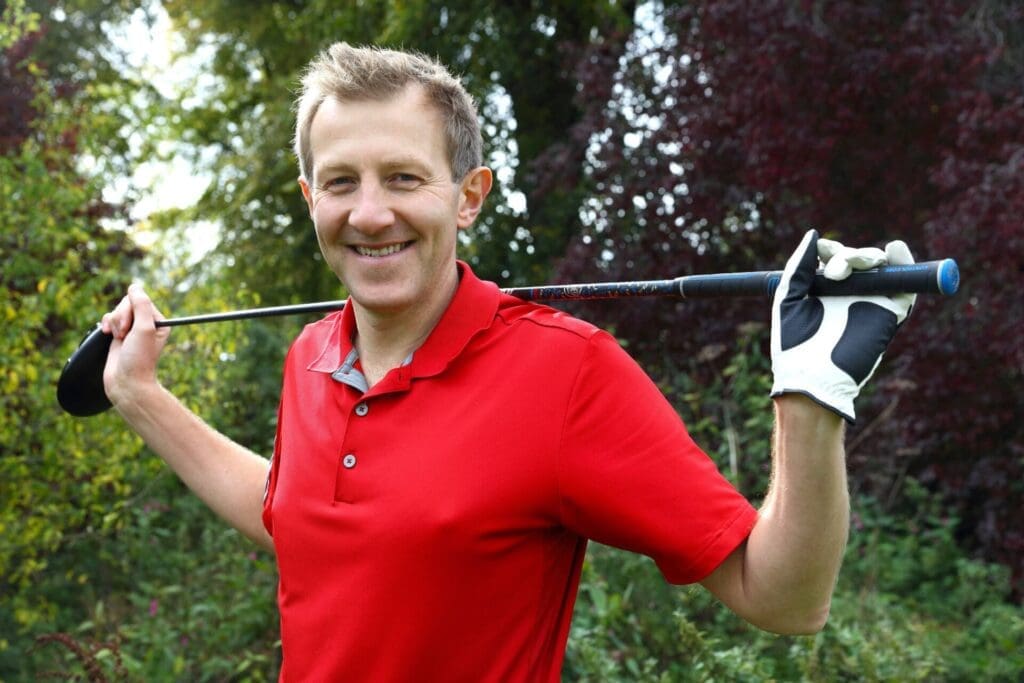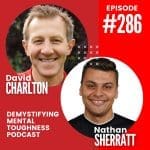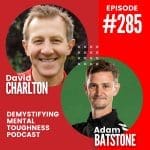Intrinsic or Extrinsic Goals: Do You Set Goals That Harm Your Performances?

By working with David Charlton, you and your organisation will be better equipped to rise to modern day challenges and better informed to thrive on and off the pitch, course or court. Where he inspires individuals and teams to:
- Cope with pressure and challenges more effectively
- Maintain positive mental health
- Compete with confidence more often
- Manage your emotions better
- Improve your commitments levels
David is a Mental Toughness Practitioner, as well as a Health Care and Professions Council (HCPC) Registered Sport and Exercise Psychologist. He has successfully supported athletes, teams and organisations for over 10 years in order to ensure that they perform at their maximum more often.
He has a comprehensive knowledge around the development of Mental Toughness, a plastic personality trait, which determines or limits people to deal effectively with change, challenges and stressors. In today’s climate, during the Coronavirus pandemic this quality is becoming more and more valuable to individuals, teams and organisations.
Commitment, a measure of mental toughness is largely about making promises to yourself and then going on to follow through with those promises, without being sidetracked or derailed. As a Sports Psychologist I note that a lot of people are highly driven and could be argued to be goal setters. Regularly setting goals and striving to attain them. Yet, they aren’t shown what are helpful goals and they don’t question whether the goals that they set are going to be beneficial for their performance or well-being.
In this solo episode I unpick this, where I ask you to consider your goals, are they intrinsic or extrinsic? Are they helping you get to where you want to get to? Do you feel good, as a result of your goals? This episode should appeal to coaches, parents, teachers and athletes themselves.
Key Learning Points
- Check out the work of Edward Deci and Richard Ryan prominent US based psychologists and the founders of Self Determination Theory.
- Deci and Ryan’s work on Self-determination Theory suggests that as humans we have three innate psychological needs that are the origin for self-motivation. These are autonomy, competence and relatedness.
- It can be argued that intrinsic goals are motivated by internal reasons or basic psychological needs, such as feelings of competence or relatedness.
- One example of an intrinsically motivated goal in a sporting context includes a goalkeeper who is having difficulties dealing with crosses. The goal then is to improve this aspect of the goalkeeper’s game, where the goalkeeper tries to see the situation as a challenge that can be overcome or a learning point, if they want to perform better for the team.
- Extrinsic goals, go on to satisfy external reasons and usually depend on external approval from others, rewards or avoiding punishments.
- Examples of extrinsic motivation driven goals include: The young goalkeeper who is told by their dad if you play well today, you’ll get a bottle of prime after the match or a cricketer who is told by his coach in a grumpy manner that he or she needs to improve their skillset, and learn to master a new shot for the new season.
- A person’s self-motivation and commitment levels, as well as their results are affected differently by the two kinds of goals that they set.
Connect with David Charlton
Join David @ The Sports Psychology Hub
Instagram, Facebook, Twitter and LinkedIn
Relevant Podcast Episodes to Help Your Commitment Levels
Ep002: Steve Judge – How to Deal with Adversity
Ep021: Steve Hackney – How To Reach Your Full Potential
Ep042: Mark Bennett MBE – Characteristics of High Performance Athletes
Ep138: Nick Littlehales – Why do the Mentally Tough see Sleep and Recovery as Important
Ep141: David Charlton – How to Help a Child Who Wants to Quit Sport
Other Relevant Blogs and Resources to Boost Your Commitment
Blog: Focusing on the Process as a Team
Blog: Why You Should Stop Setting SMART Goals
Blog: Cricket Psychology Tips: Control the Controllables
4 Steps To Form A Habit That Actually Sticks
Our guide to checking if your goals are intrinsically driven.
Click the button below to join The Sports Psychology Hub a Facebook group that David hosts to help ambitious athletes, serious sport coaches, sporting parents, sports psychologists and mental game coaches to support each other.
IF YOU ENJOYED TODAY'S SHOW PLEASE SHARE
SUBSCRIBE AND LISTEN ON YOUR FAVOURITE AUDIO PLATFORM
Also, kindly consider taking the 60-seconds it takes to leave an honest review and rating for the podcast on iTunes, they’re extremely helpful when it comes to the ranking of the show and we read every single one of them!

Best Wishes
David Charlton
Global Sports Psychologist who is located near Newcastle Upon Tyne, UK and willing to travel Internationally. David also uses online video conferencing software (Zoom, Facetime, WhatsApp) on a regular basis and has clients who he has supported in USA, Canada, South America, UAE, Australian and New Zealand.
Managing Director – Inspiring Sporting Excellence and Founder of The Sports Psychology Hub. With over 10 years experience supporting athletes, coaches, parents and teams to achieve their goals, quickly.
T: +44 7734 697769









